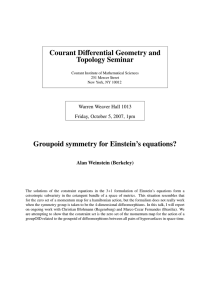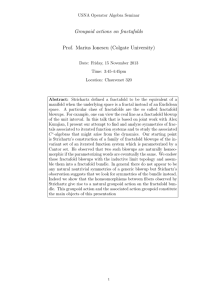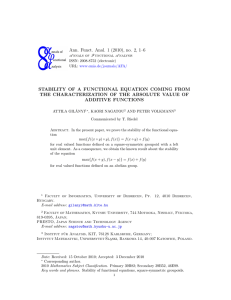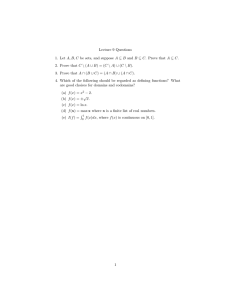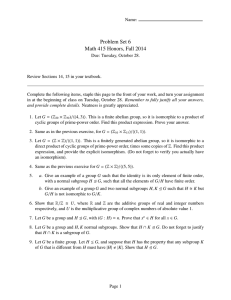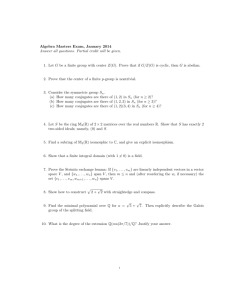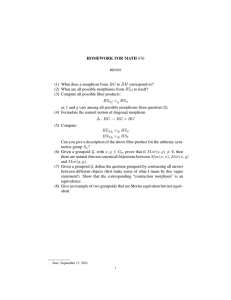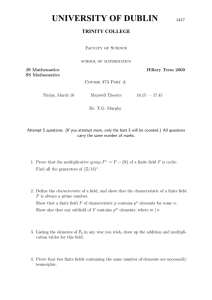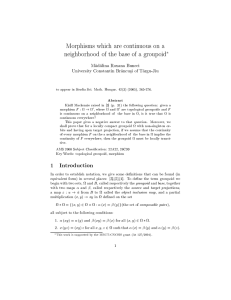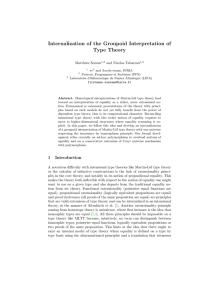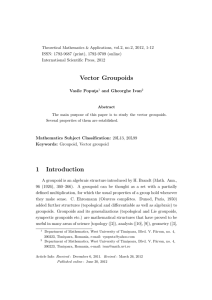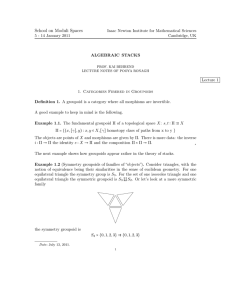Problems and Categories and Groupoids
advertisement
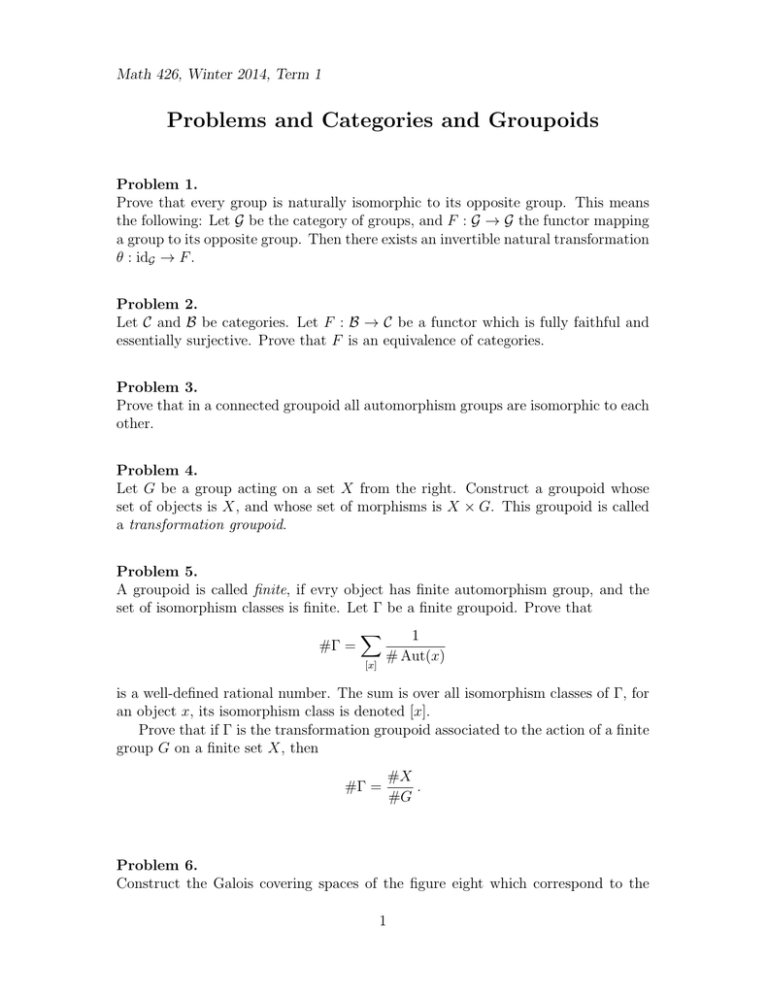
Math 426, Winter 2014, Term 1 Problems and Categories and Groupoids Problem 1. Prove that every group is naturally isomorphic to its opposite group. This means the following: Let G be the category of groups, and F : G → G the functor mapping a group to its opposite group. Then there exists an invertible natural transformation θ : idG → F . Problem 2. Let C and B be categories. Let F : B → C be a functor which is fully faithful and essentially surjective. Prove that F is an equivalence of categories. Problem 3. Prove that in a connected groupoid all automorphism groups are isomorphic to each other. Problem 4. Let G be a group acting on a set X from the right. Construct a groupoid whose set of objects is X, and whose set of morphisms is X × G. This groupoid is called a transformation groupoid. Problem 5. A groupoid is called finite, if evry object has finite automorphism group, and the set of isomorphism classes is finite. Let Γ be a finite groupoid. Prove that #Γ = X [x] 1 # Aut(x) is a well-defined rational number. The sum is over all isomorphism classes of Γ, for an object x, its isomorphism class is denoted [x]. Prove that if Γ is the transformation groupoid associated to the action of a finite group G on a finite set X, then #Γ = #X . #G Problem 6. Construct the Galois covering spaces of the figure eight which correspond to the 1 dihedral group with 8 elements and the quaternionic group with 8 elements. Here we use D8 = ha, b | a4 = 1, b2 = 1, baba = 1i and Q8 = ha, b | a2 = b2 , bab = ai. Problem 7. Find the maximal abelian cover of a bouguet of n circles. 2
